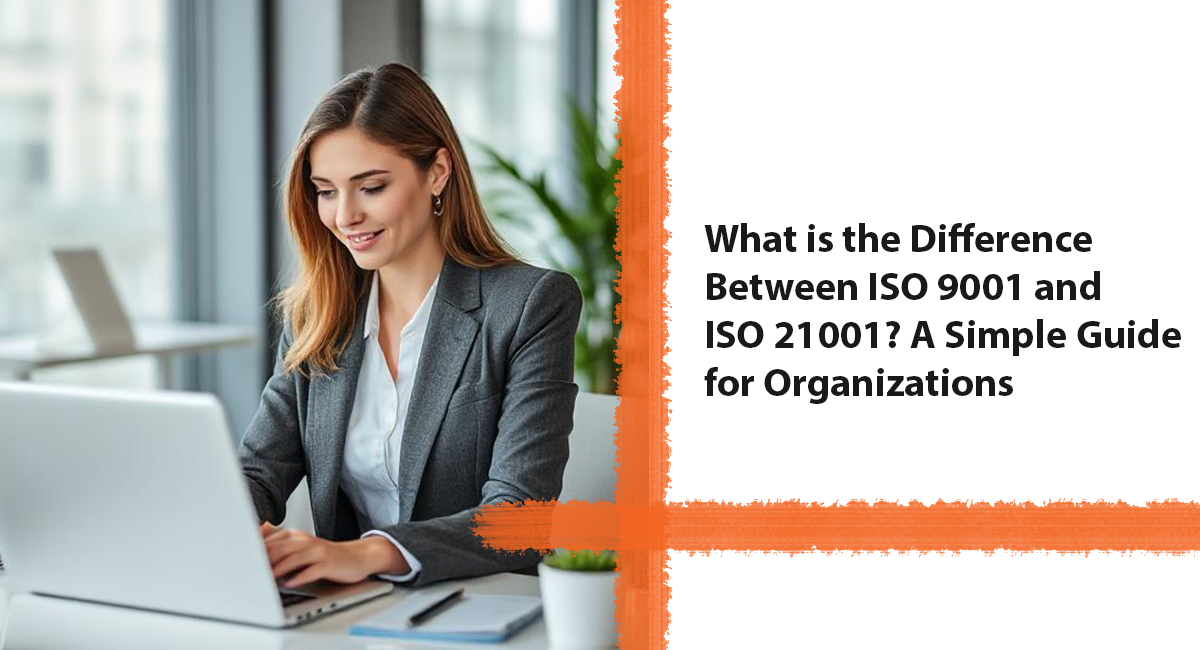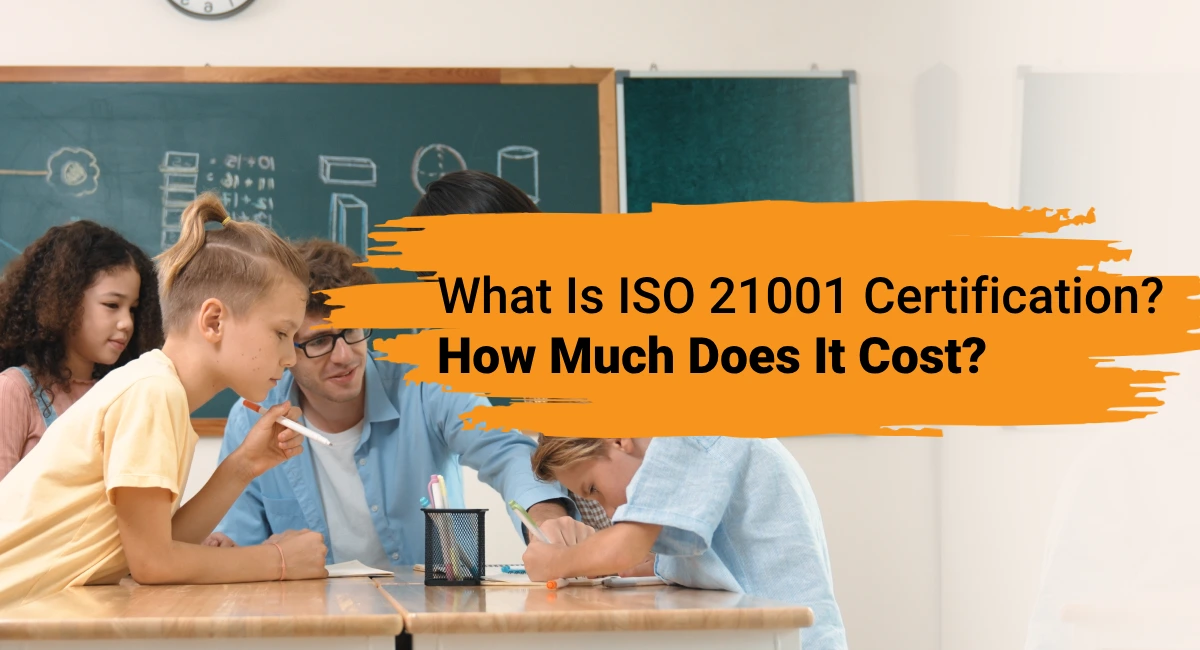Talking about quality, performance, and student satisfaction in the management system standards, ISO 9001 and ISO 21001 are frequently mentioned. Even though both look at organizational types similarly, they are intended for different groups and perform various tasks. This guide shows what is the difference between ISO 9001 and 21001 and explains them simply for organizations aiming to work according to global best practices.
Understanding the Basics: ISO 9001 and ISO 21001
What is ISO 9001?
The international standard for Quality Management Systems (QMS) is called ISO 9001. Millions of organizations around the globe have adopted this ISO standard because it applies to all areas and all sizes. ISO 9001 focuses on making sure organizations follow what their customers and regulators need and boost their customer satisfaction.
The main idea of this standard is to improve workflows, enhance the company’s activities continuously, think about risks, and focus on customer needs. Thanks to ISO 9001, companies can develop a good quality base and offer improved services and products, while achieving better results.
What is ISO 21001?
ISO 21001 standards have been created just for education organizations. It follows ISO 9001, although it is adjusted to meet the specific needs and aims of schools, universities, training centers, and large-scale learning departments.
The standard is aimed at increasing how pleased learners are as well as their outcomes, ensuring equality and better teaching and learning. It supports the main goals of schools and attempts to increase transparency, responsibility, and enhance improvements in learning.
ISO 9001 vs. ISO 21001: Key Differences
This blog compares the two standards in detail on a number of important factors.
Target Audience
ISO 9001 works for all organizations in any industry.
ISO 21001 has been created only for educational organizations, which cover both schools and learning centers.
Purpose
ISO 9001 is meant to help companies maintain high product/service quality and make customers happier.
ISO 21001 is created to make sure learners’ and beneficiaries’ needs are met through effective education systems.
Core Focus Areas
ISO 9001 focuses on process, products, and service quality.
ISO 21001 focuses on resulting skills and learning experiences, welcoming all learners, and improving their skills.
Terminology
Those terms, such as “customer,” “product,” “service,” and “supplier,” are used by ISO 9001.
Learner, educational service, curriculum, and faculty are some of the terms used in ISO 21001, which match how education environments work.
Stakeholder Engagement
ISO 9001 pays attention to customers, suppliers, and people who play key roles in the organization’s activities.
Parents, learners, teachers, staff, and the whole community are assigned a greater role in ISO 21001.
Learning-Centered Approach
While the goal of ISO 9001 is focused on the quality of what is produced, ISO 21001 centers on learning processes. It includes ideas such as tailored learning, easy access, and learning advancement, all of which are not found in ISO 9001.
Additional Clauses and Requirements
ISO 21001 introduces clauses specific to education, including:
- Learning environment
- Qualifications of the teachers
- Curriculum development
- Learning outcomes
There are extra requirements for documentary and data controls, not found in ISO 9001.
Which of the Standards is the Right One?
If you belong to any organization in manufacturing or services, or if you are not involved in education, ISO 9001 is what you require.
If education or training is part of your organization’s work, ISO 21001 will be more useful and meaningful for you.
Even so, some educational groups could decide to get ISO 9001 and ISO 21001 to show how they manage well and practice quality in areas outside teaching.
Benefits of Each Standard
ISO 9001 Benefits
- Global recognition and trust
- Improved product or service consistency
- Increased customer satisfaction
- Streamlined operations
- Competitive advantage in bids and tenders
ISO 21001 Benefits
- Enhanced learner satisfaction
- Improved educational processes
- Better communication with the stakeholders
- Accessible and inclusive learning
- Stronger alignment with educational goals and values
Final Words
This blog has rightly answered the frequently asked question – what is the difference between ISO 9001 and 21001? Though there is an overlap when compared to ISO 9001, ISO 21001 is still for a different purpose and also for a different audience. While most businesses know ISO 9001 is the go-to standard for improving quality management, ISO 21001 is the one aimed at meeting the needs of educational institutions. Thus, knowing the difference is important for choosing the correct path of certification and aligning it with the mission of your organization. If you are part of a business or an educational institution, an ISO standard can bring you more trust, credibility, and performance, with the inside and outside people alike.
FAQs
Would an educational institution be able to serve both ISO 9001 as well as ISO 21001?
Both standards are taken up by educational institutions. ISO 9001 enhances the entire quality management, while ISO 21001 focuses on the effectiveness and learner satisfaction.
Is ISO 21001 only for schools and universities?
No. ISO 21001 can be applied to all types of educational organizations, whether that is a training center, an e–learning platform, a corporate training department, a school or university, etc.
Do the audits for ISO 9001 and ISO 21001 run in the same way?
The procedures for the audit are similar to use ISO auditing standard protocols. Naturally, however, ISO 21001 audits have additional criteria aimed at aspects of learning outcomes, the curriculum, and the inclusivity that are related to education.





